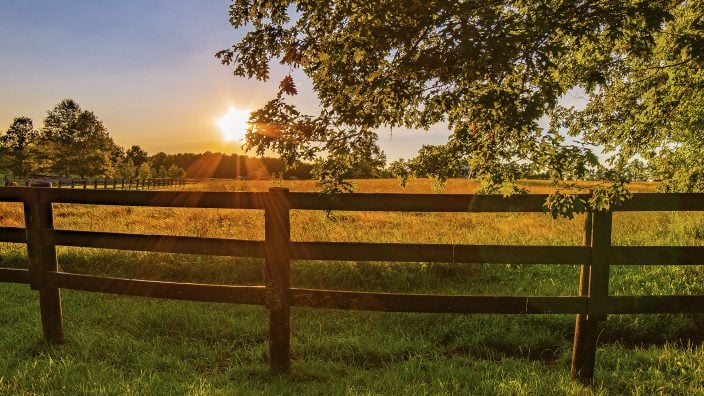Applications for Ohio Farm Bureau Health Plans now available
Members have three ways to apply: contacting a certified agent, calling 833-468-4280 or visiting ohiofarmbureauhealthplans.org.
Read MoreThere are quite a few advantages of being a landowner, including tax deductions, returns on the investment and potential borrowing power. But owning land also comes with some liability. For instance, what if someone gets hurt while trespassing on your property?
In this episode of Legal with Leah, Ohio Farm Bureau’s Ty Higgins visits with OFBF Policy Counsel Leah Curtis who explains landowner liability.
Listen to Legal with Leah, a podcast featuring Ohio Farm Bureau’s Policy Counsel Leah Curtis discussing topics impacting farmers and landowners.
Ty Higgins: There are quite a few advantages of being a landowner, including tax deductions, return on your investment, potential borrowing power, but owning land also comes with some possible liability. That’s what we’re covering on this Legal with Leah. Leah Curtis is Ohio Farm Bureau’s policy counsel and Leah, the obvious landowner liability question that comes to mind that you’ve actually received recently is if someone’s on your land that shouldn’t be and they get hurt while trespassing, who would be at fault? And could the landowner be sued?
Leah Curtis: I’ll answer the easy part of that question first. A landowner can always be sued in that situation. Really, anybody can get sued for anything at anytime. Be it valid or ridiculous. And, the court system is there to sort out what’s a what’s a real complaint and what’s not. So that’s always a possibility and one to always consider. As far as would the landowner be liable? That’s where we get to the ‘It depends’ situation. Generally, the law says that a landowner does not owe a duty of care to a trespasser. So you don’t have to take any special action to protect a trespasser. When a court is looking at whether there’s liability or not, they are going to look at kind of the whole situation: What happened? How did it happen? What was going on around it? And then they’ll determine whether there was liability or not. But generally, we don’t have a liability as landowners to trespassers who get harmed on our land.
Ty Higgins: So what can landowners do to give themselves some protection against liability?
Leah Curtis: Things landowners can do are some of the same things that they would do to protect their own family or guests or service people who might be on their property. No trespassing signs are always a great start. That way, people know they’re not where they should be. They’re not required (the signs) to have somebody found as a trespasser. But they just help. It’s just one more thing that helps. And then what is the actual risk? Is the risk somebody is going to fall into a hole or something? So, can we park equipment so that that hole is not as accessible? Can we put a flag around it? You know, if it’s something that’s temporary can we put a temporary warning sign there? What kind of those low cost things that we could do to just prevent someone, anyone from getting hurt? That’s just even extra more protection when it comes to a trespasser.
Ty Higgins: I’ve also heard over the last year that there’s some maybe rules or legislation coming out that involves a can of spray paint and a little bit of walking around the property.
Leah Curtis: There there is a bill in the legislature. It’s kind of generally called the purple paint law. And what it says is that, following a set of requirements, if you paint using purple paint on trees or fence posts or whatever is out there in the natural landscape, those can serve as indicators of basically the property line and of no trespassing. And so, there is certain size and certain amount [of paint necessary], but it’s just one more tool. It’s probably a little easier than trespassing signs that disintegrate and fall down. And it would just be one more way for people who maybe even have no intention of trespassing, but they don’t realize, oh, when I went past that maple tree, I just crossed onto somebody else’s land. Well, now that purple paint notification can kind of serve to say to them, you’re now entering into somebody else’s property. So just one more tool in the toolbox for landowners to kind of mark their boundary lines and let people know where those lines are.
Ty Higgins: I will throw you a curve ball. Something that just popped into my head is that deer season, gun season, hunting season is going to be coming up in a couple of weeks. Let’s say that you give someone permission to come onto your property and God forbid something happens where someone gets injured. Who’s liable then?
Leah Curtis: So, again, it’s going to depend on a lot of different factors including who it is that actually got hurt. But, generally when you give people permission to be on your land for recreational purposes, including hunting, and typically that would be without any kind of exchange of money. So they’re not paying you for that access. You’re just allowing them. There’s a special law that says the landowner is not liable for injuries that occurred to that person. It generally also it would be the person who actually shot someone or actually hurt someone that would be the one that’s liable. So you as a landowner wouldn’t have much of a duty to that hunter that you gave permission to. And if that hunter injured somebody else, then it’s going to be likely that hunter’s possible liability, not the landowner’s.
Ty Higgins: Of course, there are all kinds of questions that landowners have. And there’s a great resource we have at Ohio Farm Bureau to help them out. Tell us about the landowner toolkit.
Leah Curtis: Our landowner’s tool kit is a expansive guide. It covers pretty much all of the hot topics that we get questions about all the time. So things like trespassing, like drainage, like zoning, open burning is a favorite. So it’s this whole guide for all of these topics that you as a landowner may just have kind of random questions about. And it gives you the background and the overview of all those areas. So with trespassing, we talk about who do you have a duty of care to. What’s your care to your social guests, your business people that might come on your land? And what do you need to do to kind of prevent liability or what are steps you should take? And then what are other important protections that you have as a landowner, like with hunters, like with agritourism liability and how those factor into that calculus as well to just kind of help you give a better picture of all those different aspects of being a landowner that can kind of be a legal issue for you.
Ty Higgins: That’s Leah Curtis, policy counsel with Ohio Farm Bureau. You can find out more about that landowner toolkit online.


Members have three ways to apply: contacting a certified agent, calling 833-468-4280 or visiting ohiofarmbureauhealthplans.org.
Read More

Legacy nutrient deductions enable new farmland owners to claim deductions on the nutrients within the soil on which healthy crops depend.
Read More

Farmers, agribusinesses and community members are encouraged to nominate their local fire departments for Nationwide’s Nominate Your Fire Department Contest through April 30.
Read More

Introduced by Sen. Paula Hicks-Hudson, SB 120 would establish the Urban Farmer Youth Initiative Pilot Program.
Read More

Gases, vapors, and fumes can all create risk. How can we measure and protect ourselves from them?
Read More

The Ohio Farm Bureau’s Young Agricultural Professionals State Committee has named its 2026 leadership and the individuals who will be serving on the state committee for 2026-2028.
Read More

The Ohio Farm Bureau Foundation has multiple scholarships available to Ohio students from rural, suburban and urban communities who are pursuing degrees with a connection to the agricultural industry.
Read More

With 100% bonus depreciation now permanent, farmers can deduct the full cost of a new agricultural building in the year it’s placed in service.
Read More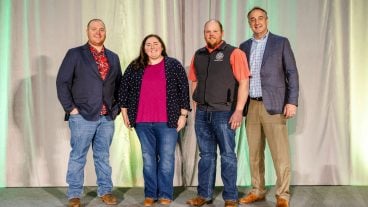
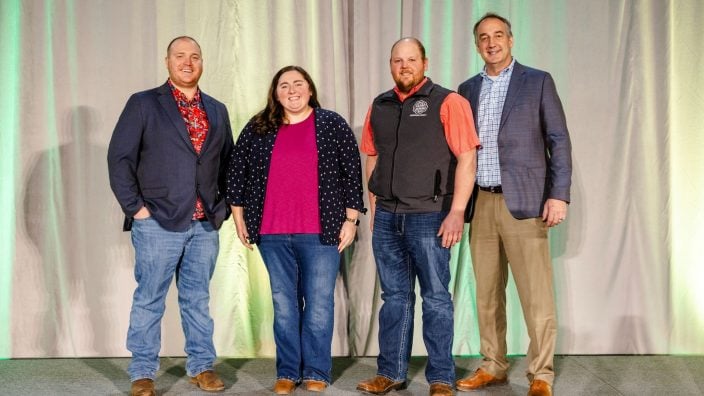
Lincoln Deitrick was named the Outstanding Young Farmer, Denver Davis won the Excellence in Agriculture Award, and Margaret Houts won the Discussion Meet.
Read More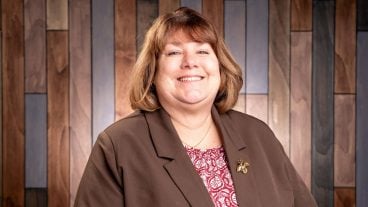
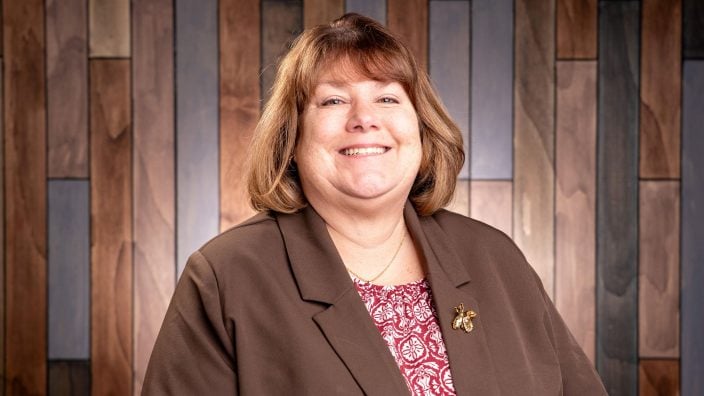
Michelle Downing of Franklin County has been named finance director of county operations for Ohio Farm Bureau.
Read More